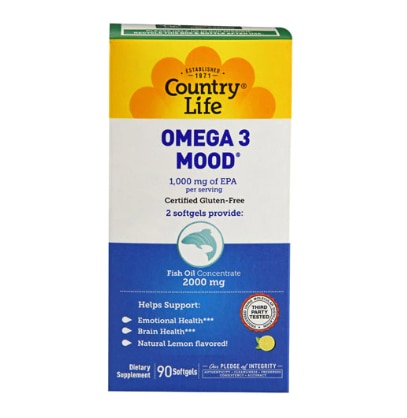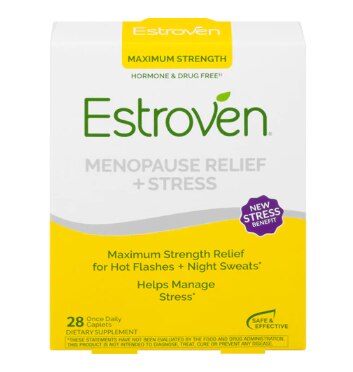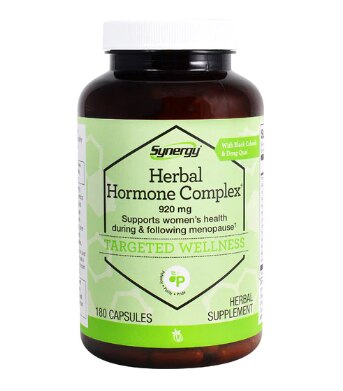Menopause has historically been more synonymous with “mood swings” than “mental health”—until recently.
While a dearth of data exists on the topic of menopause in general—research reveals that only one in five OBGYNs are trained in menopause—more and more current studies confirm what women of a certain age have known for…well, ever: The transition out of their reproductive years is defined not only by hot flashes and night sweats but also by inexplicable depression, crippling anxiety and the sudden inability to recall where they put their keys.
Sound familiar? You’re not alone.
According to Women’s Midlife Health, 18% of women in early perimenopause—the years preceding menopause (the complete cessation of menstruation for a year or more) — experience depression. This percentage jumps to 38% in laterperimenopause. Meanwhile, anxiety strikes frequently, and with fire: Many women experience panic attacks in the months and years leading up to menopause, which, as Harvard Health remarks, can persuade them into thinking that aging will be bleak.
Insider tip: It’s not.
And yet, why does this happen? And, if this does in fact sound familiar to you, what can you do to cope with it all?
Keep reading as we peel back the layers.
Why mental health is threatened during perimenopause and menopause
The primary cause of feeling mentally unwell during perimenopause — and, later, menopause—is due in large part to a decline in estrogen.
You know that sense of glee, that pure, wonderful energy, you feel perhaps a week after your period starts?
Thank estrogen for that boost.
When your estrogen levels increase, so do your levels of serotonin—a key neurotransmitter that regulates feelings of well-being. When your ovarian function begins declining during perimenopause, estrogen drops, and may leave you feeling doomed.
That said, it’s important to note that not all women and AFAB (assigned female at birth) endure this. Harvard Health is just one source out of many who asserts that depression and anxiety during perimenopause are more common in those who have previously suffered from a mental health disorder. Those with bipolar disorder, for example, may be more prone to huge swings in their moods than those without it.
Regardless of your mental health past, rest assured you aren’t in fact doomed. The most important things to do are:
1. Recognize that these alterations in your mental (and physical) health are part and parcel of the process of aging
2. Realize you have the power to take control of your mental health
3. Honor what your brain and body are going through — and celebrate this era of change
4. Trust that it is likely temporary: Data shows that the more time that passes after menopause, the less you will feel mentally off
5. Identify your symptoms, be gentle with yourself and be realistic about when you may need professional help — topics we’ll jump into next
Menopause and mental health: Know the symptoms
Being female is to be dynamic. This we know—from the roughly 40 years we women menstruate. The hormone fluctuations and psychological shifts we begin experiencing with our first period may be tiresome, but they’re exacerbated in perimenopause and menopause. These may include:
Despair
Depression
Anxiety
Panic
Paranoia
Anger
Irritation
Difficulty concentrating
Confusion
Tearfulness
Changes in libido
These mental health challenges can be compounded by oscillations in your physical realm. The inability to sleep well, weight gain, vaginal dryness, headaches, joint pain, muscle aches—all of these more talked-about signs of menopause can only intensify the chaos you may feel in your mind.
According to The American College of Obstetricians and Gynecologists, the official name for this is perimenopausal mood instability. While you’re experiencing these extreme highs and lows in our mental health, a title may seem like a moot point. What seems more urgent, perhaps, is discovering a method out of what may feel like madness. Here’s how.
How to manage perimenopausal and menopausal mental health
First things first:
If these symptoms resonate with you, you may want to book an appointment with your healthcare professional to assess your hormone levels. This will provide you with a clearer picture of where you stand, and the measures you may need to take to return to balance.
Additionally, consider these steps:
Revamp your lifestyle
Adequate exercise, sufficient sleep, sound nutrition, smart stress-busting activities and hydration go an exceptionally long way in making anyone feel better, period. (Pun intended.) Practicing these primary pillars of health will help you build a foundation to weather the winds you may be experiencing.
Weave supplements into your daily
Several supplements have been shown to nourish people through this era of change. Black cohosh, for one, offers organic support for menopausal symptoms. The Peruvian herb maca may also support healthy estrogen production, which might enhance your mood in general. And reishi, derived from the mushroom of the same name, may bolster feelings of well-being while also buttressing your immune system.†
Shore up your adrenals
When your ovarian function begins to dwindle, your adrenals—teeny glands, located above your kidneys, that produce critical hormones like noradrenaline, adrenaline, cortisol and aldosterone — take over.
These are mighty endocrine glands, but they’re also hard hit by stress — and a woman/AFAB’s late 30s, 40s, 50s, and early 60s are classically filled with stressors, like dealing with aging parents, children leaving home, and professional and relational changes.
To ensure your adrenals can take on as many responsibilities as you — like heart rate, blood pressure, and metabolism—omit (or at least cut down on) alcohol, refrain from smoking, aim to eat within the first hour of waking, and concentrate on restorative exercises, such as yin yoga and walking.
Consider hormone replacement therapy
Hormone replacement therapy (HRT) may get a bad rap because of insufficient, dated and, dare we say, biased research, but it can work wonders for some women and AFABs. Discuss your medical history with your healthcare professional to determine if this route of recovery may be right for you.
Above all, respect and perhaps even salute this time. “Aging, ”unfortunately and unnecessarily, has a negative connotation, which may only intensify your mental health troubles. Rather, embrace how far you have come and applaud the fact that you have now entered a time of revelation—a stage, if not epoch, in which you may soon be (or are) no longer shedding your uterine lining but are also shedding who you used to be and becoming who you were meant to be all along: A person with confidence, grace, authority — and the courage to at long last live by your truest, most genuine values.
†These statements have not been approved by the Food and Drug Administration. These products are not intended to diagnose, treat, cure or prevent disease.




